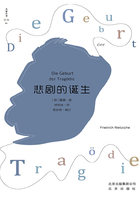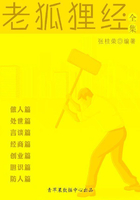Another feature of transition is perceivable in the history of the class of servants or ministers who collect and supervise the dues and services of the peasants. The feudal arrangement is quite as much characterised by the existence of these middlemen as modern life by the agreements and money dealings which have rendered it useless. In the period preceding the manorial age we see fewer officers, and their interference in the life of the community is but occasional. The gathering of tribute, the supervision of a few labour duties in addition, did not require a large staff of ministers. It was in the interest of the lord to dispense as much as possible with their costly help, and to throw what obligations there were to be performed on the community itself. It seems to me that the feudal age has preserved several traces of institutions belonging to that period of transition.
The older surveys, especially the Kentish ones, show a very remarkable development of carriage duties which must have been called forth by the necessity of sending produce to the lord's central halls or courts, while the home farms were still few and small. The riding bailiffs appear in ancient documents in a position which is gradually modified as time goes on. They begin by forming a very conspicuous class among the tenants, in fact the foremost rank of the peasantry. These radmen, radulfs, rodknights, riders, are privileged people, and mostly rank with the free tenants, but they are selected from among the villagers, and very closely resemble the hundredors, whose special duties have kept up their status among the general decay. In later times, in the second half of the thirteenth century and in the fourteenth, it would be impossible to distinguish such a class of riding tenants. They exist here and there, but in most cases their place has been taken by direct dependents of the lord.
Besides, as the home-farm has developed on every manor, their office has lost some of the importance it had at a time when there was a good deal of business to transact in the way of communicating between the villages and the few central courts to which rents had to be carried. And, lastly, I may remind the reader of the importance attached in some surveys to the supervision of the best tenants over the rest at the boon works.
The socmen, or free tenants, or holders of full lands, as the case may be, have to ride out with rods in their hands to inspect the people cutting the corn or making hay. These customs are mostly to be found in manors with a particularly archaic constitution. They occur very often on ancient demesne. And Ineed hardly say that they point to a still imperfect development of the ministerial class. The village is already set to work for the lord, but it manages this work as much as possible by itself, with hardly any interference from foreign overseers.
One part of the village population is altogether outside the manorial labour intercourse between village and demesne. The freeholders may perform some labour-services, but the home-farm could never depend on them, and when such services are mentioned, they are merely considered as a supplement to the regular duties of the servile holders. At the same time, the free tenants are members of the village community, engrained in it by their participation in all the eventualities of open field life, by their holdings in the arable, by their use of the commons. This shows, again, that the manorial element is superimposed on the communal, and not the foundation of it. I shall not revert to my positive arguments in favour of the existence of ancient freehold by the side of tenements that have become freehold by exemption from servile duties. But I may be allowed to point out in this place, that negatively the appearance of free elements among the peasantry presents a most powerful check to the theory of a servile origin of the community: it throws the burden of proof on those who contend for such an origin as against the theory of a free village feudalized in process of time.
In a sense the partizans of the servile community are in the same awkward position in respect to the manorial court. Its body of suitors may have consisted to a great extent of serfs, but surely it must have contained a powerful free admixture also, because out of serfdom could hardly have arisen all the privileges and rights which make it a constitutional establishment by the side of the lord. The suitors are the judges in litigation, the conveyancing practice proceeds from the principle of communal testimony, and in matters of husbandry, custom and self-government prevail against any capricious change or unprecedented exaction. And it has to be noticed that the will and influence of the lord is much more distinct and overbearing in the documents of the later thirteenth and of the fourteenth century, than in the earlier records; one more hint, that the feudal conception of society took some time to push back older notions, which implied a greater liberty of the folk in regard to their rulers.
Whichever way we may look, one and the same observation is forced upon us: the communal organisation of the peasantry is more ancient and more deeply laid than the manorial order. Even the feudal period that has formed the immediate subject of our study shows everywhere traces of a peasant class living and working in economically self-dependent communities under the loose authority of a lord, whose claims may proceed from political sources and affect the semblance of ownership, but do not give rise to the manorial connexion between estate and village.















